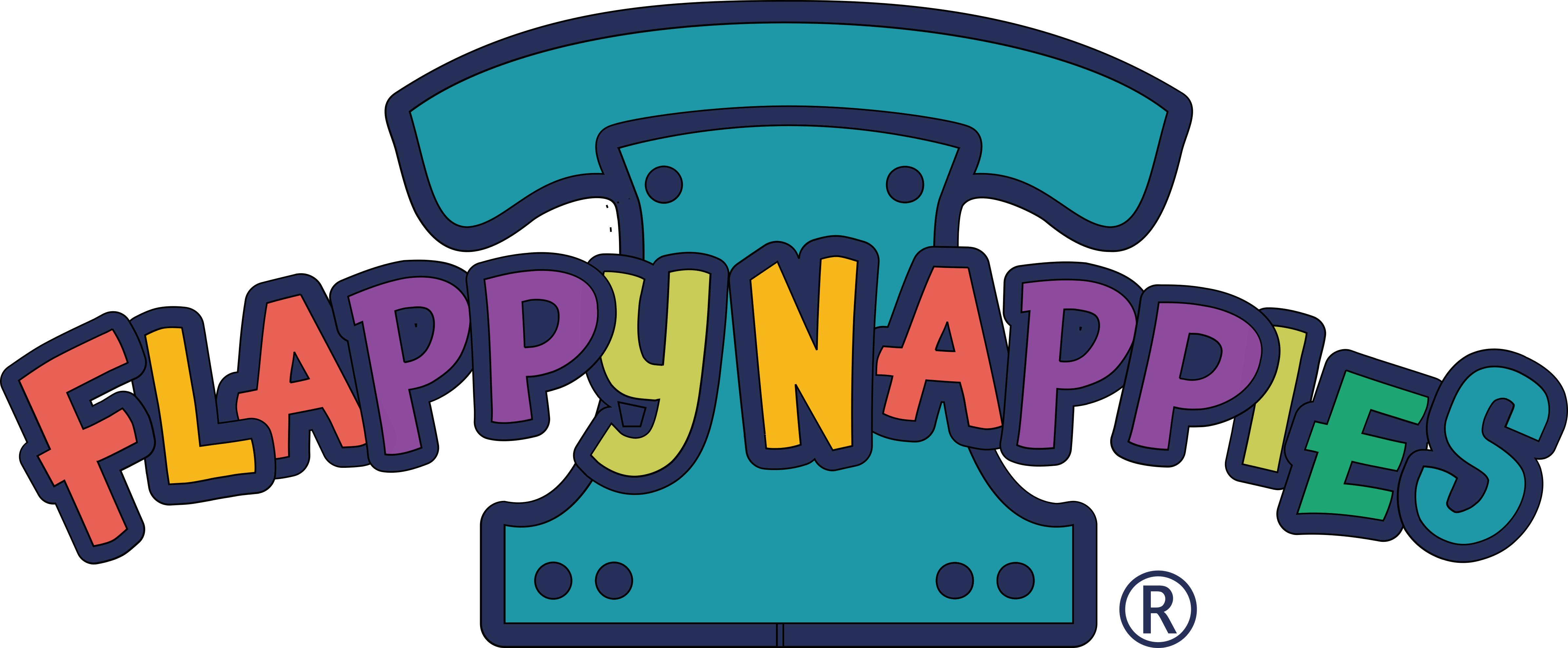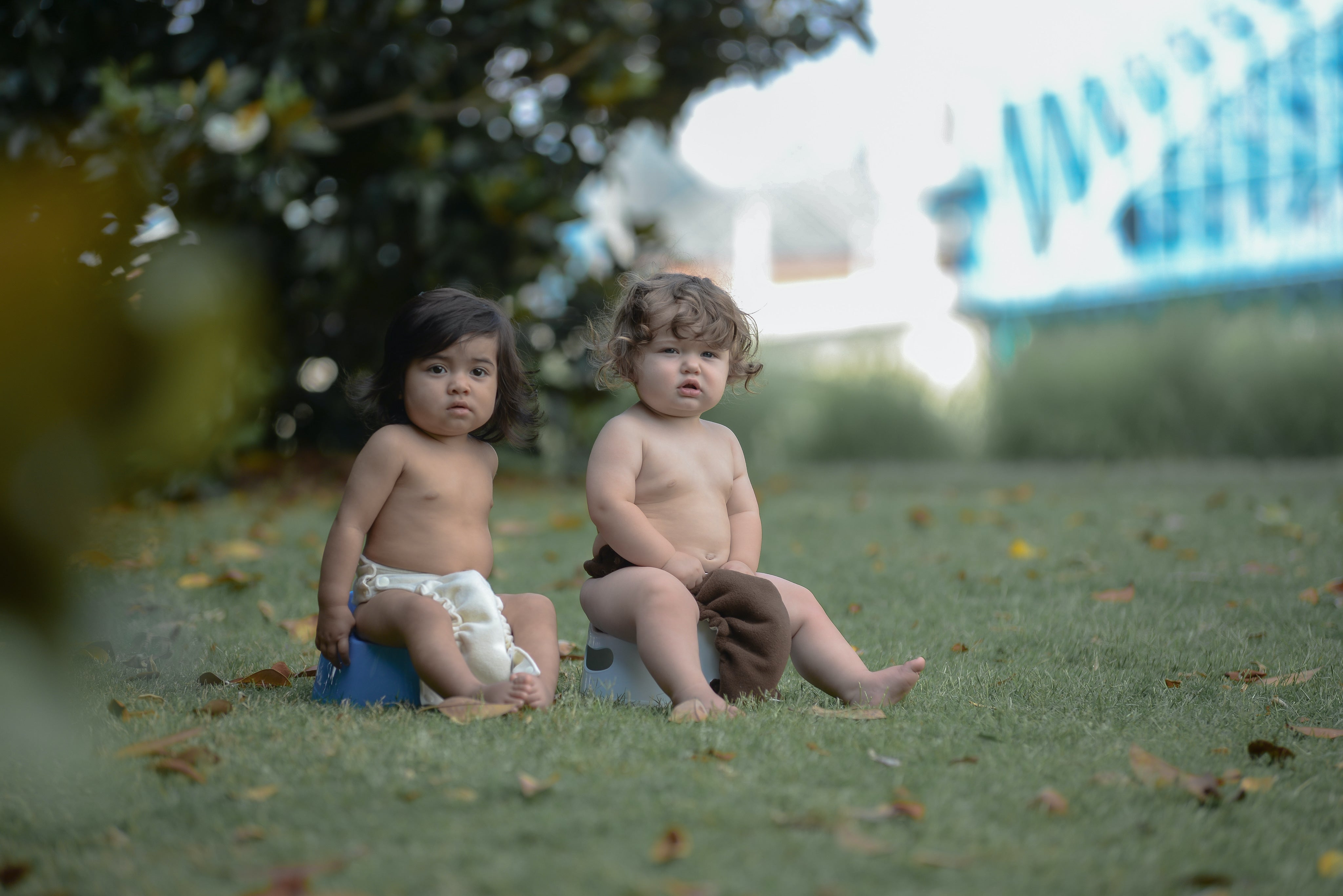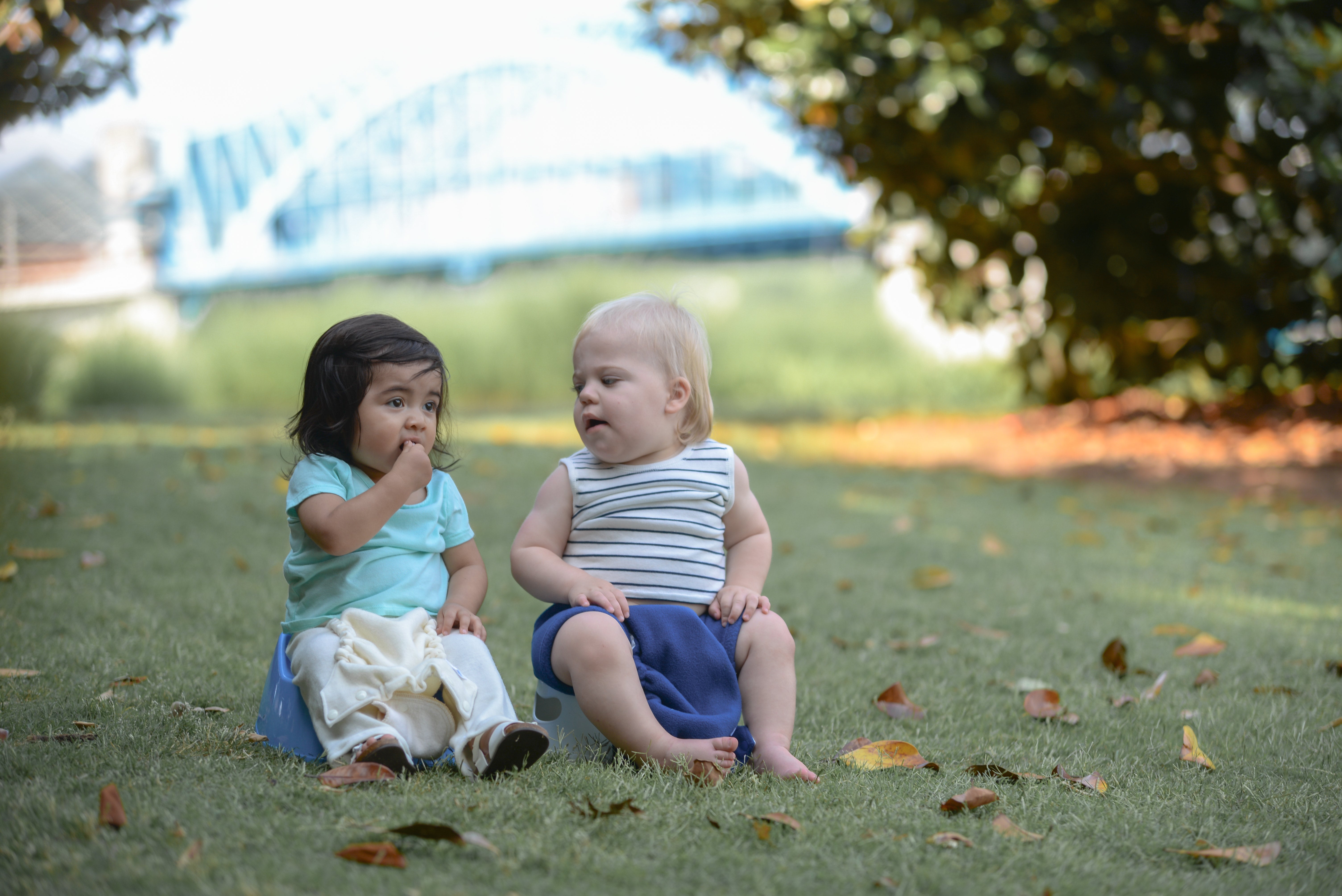10 Bad Excuses to Not Try EC--And One Really Good Reason Not To

Back when I was a new mom, I mentioned that I was doing Elimination Communication (EC) at a get-together with a bunch of mom friends. Although a couple of them expressed interest in trying it, the rest dismissed it one by one. With only my brief explanation to go on, they immediately found a reason for why it wouldn’t work for their family.

My daughter uses the potty in a viral reel.
Later, I made a reel demonstrating Newborn EC with my then one-month-old daughter. The comments section quickly flooded with people who had never heard of such a thing before. Based off only a 45-second video, many of these people rejected it as stupid, impossible, or damaging.
“Be Curious, Not Judgmental”
Regardless of your gut reaction to the idea of a newborn baby using the potty, I urge you to be curious. You might learn that EC is an ancient parenting technique that is still practiced all around the world. You might learn that EC is fun and easy to learn and reduces landfill waste and laundry. You might also learn that EC can fit into your lifestyle, even if one of the situations below applies to you.
The following is a list of soundbites I often hear for why EC won’t work. However, many people who live with these situations fit EC beautifully into their lives. So, if you’ve just heard about EC and are ready to be curious, read on.
Soundbite #1:
EC won’t work because my baby only poops while breastfeeding OR my baby only poops once a week OR my baby only poops at night, etc.
Far from being a reason to not try EC, the fact that you are already so aware of your baby’s elimination patterns is a huge advantage! If your baby only poops once a week, you are probably already wary of the impending poop because it will be a massive blowout. When baby starts to go, take him or her immediately to the potty and be amazed at how much less mess you have to clean up!
If your baby only poops while breastfeeding, or at night, or any other inconvenient time, you might be surprised that if you offer the potty during diaper changes that your baby’s elimination patterns start to change. If not, keep in mind that how and when a newborn poops will evolve as your baby grows.
For babies that poop during feeds, you can offer the potty before, after, or even during a feed. You can also offer the potty at night for your night-pooper; offering the potty is no more disruptive at night than changing a poopy diaper. For more tips on managing EC with typical newborn behavior, check out my troubleshooting FAQ sheet in my EC guide, Diapers Stink!
Soundbite #2:
I like the idea of EC, but I feel like it would be easier to wait until baby can sit up.

Although newborns need assistance using the potty, it's easiest to begin with a baby between 0 and 3 months old.
I hear this one a lot. For the most part, this is totally valid. If life with a newborn is hectic and the idea of adding EC to your plate is stressing you out, then by all means wait a while before you begin. However, do not plan to start later simply because you think that waiting until your baby is older means EC will be easier.
EC is easiest to begin when your baby is between 0-3 months because babies this young have not yet been conditioned to use a diaper as a toilet and have instincts not to soil themselves. They also pee and poop frequently, giving you plenty of opportunities to use the potty.
The longer you diaper your child, the harder it will be to unlearn the habit. This is why children who have been diapered 24/7 for 3-4 years often beg for diapers to poop in. They’re so used to pooping into a diaper that they physically cannot do it without one!
Soundbite #3:
You’d have to take baby potty 1,000 times a day for EC to work.
The people who say this rightly understand that newborn babies pee and poop a lot, and it sounds like a lot of effort to get all of that successfully into the potty. What they don’t understand, however, is the real point of EC.
The point of EC is NOT to have a potty-trained baby; the point is to AVOID a diaper-trained baby!
Parents who do EC don’t intend or expect to get every pee and poop in the potty until their children are older; they usually use a diaper as a backup. But because these children are not diapered 24/7, they remain in touch with their elimination needs and typically transition out of diapers much younger and more easily.
The people who say this also seem to think that babies pee and poop entirely at random, and you’d need to take the baby potty 1,000 times a day to get lucky enough to catch something. This is false! Babies pee and poop at very predictable times, such as after sleeps, after feeds, and after prolonged sitting in the car seat, stroller, or baby carrier. Many people have great EC success using timing alone.
Babies can also have cues when it’s time to go potty. Some cues include making a “poop face”, passing gas, getting squirmy, getting fussy, or getting very quiet and still. Learning to read these cues is no harder than learning to read your baby’s cues for hunger or sleep.

My son's "poop face" was very obvious.
With some practice, EC becomes second nature in the same way that breastfeeding does. Breastfeeding can be very difficult and take weeks or months to master, but once it’s mastered, it is very easy and rewarding. EC is no different!
Soundbite #4:
EC is just plain lazy.
Now this is a real head-scratcher. On the one hand, people tell me that EC is way too much work. On the other hand, people tell me that doing EC is lazy! So, which one is it?
I think that the “lazy” comment comes from people who think I do EC because I’m too lazy to change poopy diapers. To which I reply: Work smarter, not harder. Why is it lazy to avoid something unpleasant if there’s a perfectly acceptable alternative?
Are people lazy if they use a dishwasher instead of hand-washing their dishes? Or for sending an email instead of mailing a letter? How about driving to work instead of walking or riding a bike? Our world is full of modern conveniences that make our lives easier. This doesn’t make us lazy; on the contrary, it frees up our time to work on other pursuits.
In the case of EC, taking my baby potty takes about the same amount of time as cleaning up a diaper. It also means my baby’s bottom doesn’t have as much contact with poop and pee, she has less diaper rash and blowouts, and I waste less water on laundry. If that means I’m lazy, well, then I guess I’m OK with that.
Soundbite #5:
I believe that babies should be babies.
I hear this one over and over: “Let your baby be a baby! Don’t push potty training until she’s ready.” The irony is that the same people arguing I shouldn’t push my child into something she’s not ready for also advocate for parenting techniques such as:
- Sleep training (which might push a child to give up night feeds before she’s ready)
- Giving oatmeal in baby’s bottle to make her “sleep longer” (which could push a child into solids before she’s ready)
- Weaning from the breast before the child is ready because nursing past a year is “weird” (don’t even get me started on that one)
I think the real issue here is that people believe that “early” potty training is inherently damaging. A lot of this stems from the abusive methods used to potty train babies at the onset of the 20th century. While some potty-training techniques are certainly damaging, however, it has little to do with the child’s age. There is no age requirement for a potty-training method to be abusive any more than there is an age requirement for a potty-training method to be loving and gentle.
Since babies instinctively avoid soiling themselves, doing EC is letting my baby be a baby as nature intended.

Actual footage of my baby being a baby.
Soundbite #6:
EC only works for stay-at-home moms.
Not true! I’ve been a stay-at-home mom and I’ve been a working mom and I’ve done EC through it all. If you’re a working parent and you want to try EC, you have a couple of options.
Option 1: Do EC part-time. Just as babies learn to use bottles at daycare and breastfeed with mom, babies can learn to use diapers at daycare and do EC at home. Even if all you catch in the potty is the first morning pee, you’ll end up saving tons of diapers down the line. Your kid will also make an important connection between elimination needs and the potty.
Option 2: Get your childcare provider on board. A supportive caregiver can take over potty duty while the parents are at work.

Grandma can take baby potty, too!
We have used nannies and daycare. When I hire a nanny, I make sure to pick someone who is open to using cloth diapers and taking my baby to the potty. My kids' grandparents also potty them when they babysit.
At our daycare, the classroom for one-year-olds has access to a bathroom with little toilets and the teachers potty the children if the parents request it. The teacher for two-year-olds makes potty training a priority for all children, and is appreciative when kids come to her class already fully trained.
Unfortunately, my daycare seems to be the exception rather than the norm in the US. Some daycares will push back against any potty-training attempts before age 3! If you find that your daycare is extremely resistant to complying with your parenting choices, you can either settle for part-time EC or find a different provider.
Soundbite #7:
There’s no point to EC when your kid might just regress later.
This goes along the same lines as “I never did this and my kid potty-trained at age (1, 2, 3, etc.) without any issues.” Once again, the point of EC is NOT to potty train your baby! In fact, many people who do EC use a diaper backup during infancy and then wrap up the process around 18-24 months with a traditional potty-training method.
Regressions can happen for children regardless of if they were ECed or not, and it’s impossible to predict when they could happen. Delaying potty training to avoid regressions is an exercise in futility.
Even if my child does regress, I’d rather work through the regression when it happens than change poopy diapers for years when I don’t have to. EC also has a lot of practical benefits, such as:
- Reduction in landfill waste
- Reduction in water use for laundry
- Fewer diaper blowouts
- Less diaper rash
- Respecting a child’s instinct to eliminate outside of a diaper
- A fun way to bond with your child

Regressions can happen at any age
Soundbite #8:
You're only training yourself! Babies don’t have bladder/bowel control until around 2 years old.
The funny thing about this one is that when I first started EC with my oldest, I didn’t really think he had much control over his bladder or bowels either. I thought I was just getting lucky. That perception changed, however, when he started refusing to poop in his diaper and intentionally waiting for the toilet at 8 weeks old.
My baby isn't special, either: Studies have shown that babies have bladder and bowel control. In Vietnam, where 70% of mothers introduce the potty to their babies by 3 months old (and over 90% by 9 months old), studies have proven that infants have sphincter control and can even hold their urine during sleep. Furthermore, it has been shown that introducing the potty by age 6 months aids in bladder development and the ability to empty it.
So, am I only "training myself"? Perhaps, in the same way I've "trained myself" to do a lot of things: To feed my baby when she's hungry, comfort her when she's upset, soothe her when she's sleepy, etc. So, doing EC is “training yourself” to be responsive to your child’s elimination needs, yes, but using diapers 24/7 is "training" your child to ignore them.
Soundbite #9:
EC won’t work for us because we use disposable diapers.
Plenty of people have great success with EC when they use disposable diapers. In fact, doing EC is an awesome way to save money on diapers and to lower your contribution to landfill waste. Some families who use disposable diapers as a backup to EC even find that the diaper stays dry so long that it falls apart before being peed or pooped in!
I do believe, though, that using cloth diapers makes EC easier in the long run because babies can better feel the wetness. This helps them stay in touch with their bodily functions more than the stay-dry feel of disposables.
Flappy-Nappies® diapers in particular make EC easier because they open like a flap when it’s time to go potty. Any kind of front-closure diaper, whether it be disposable or cloth, will make potty trips more complicated, particularly when baby starts rolling, crawling, and walking.
Since Flappy-Nappies® can be changed while baby stands or crawls, you don’t have to wrestle with a baby that wants to alligator-roll away from every diaper change. Even better, you can pair Flappy-Nappies® with Chappy-Nappy pants, keeping baby’s legs warm and cozy during potty trips when it’s cold.

Chappy-Nappies and Flappy-Nappies® make EC easy!
Soundbite #10:
I read that EC could be damaging.
There’s an article floating around the internet written by a pediatric urologist claiming that EC could potentially damage your baby’s bladder. If you’ve stumbled across this and are worried, I encourage you to read the thorough debunking of this article by Jamie Glowacki, author of Oh Crap! Potty Training.
There are demonstrable benefits to practicing EC, including studies that show that early potty training is not, in fact, associated with bladder dysfunction. You might also keep in mind that the urologist responsible for this scare-mongering has exactly zero patients whose parents did EC, and all his conclusions are based on his experience with children who were exclusively diapered before being formally potty trained.
One Really Good Reason To NOT Try EC
Long ago, the term “Elimination Communication” did not exist. EC was just called parenting, because it’s what everyone did. Disposable diapers are an invention of the 20th century, and cloth diapers as we know them did not exist 200 years ago. For the vast majority of human history, mom “held the baby out” to pee and poop until baby could walk, at which point he was directed to an appropriate place to eliminate.

We now live in a world where we seem to have infinite parenting choices. If you don’t want to or can’t breastfeed, you have dozens of choices for alternatives, from the myriad of regulated commercial formulas, to milk banks for donated breastmilk, to mother-to-mother milk sharing. The baby section at Target is full of different cribs, co-sleeping bassinets, swings, bouncy seats, strollers, etc. There are more brands of disposable diapers and types of cloth diapers than I can count. The way one parent raises her child is never exactly the same as the next.
The best, most valid reason for not doing EC is simply because you don’t want to. You’ve learned about it and decided that this isn’t for you. And because we live in a world with so many alternatives, you have the option to make that choice!
But please don’t ridicule EC the minute you hear about it before you’ve really learned anything about it. And don’t think that EC automatically can’t work for you because of any of the reasons listed above. If at the end of reading this article you decide that EC doesn’t vibe with your parenting philosophy, then diaper on without shame and never look back.
But if you’re just now learning about EC and the concept has made you curious, I encourage you to give it a try! Get started today with my FREE guidebook to EC, Diapers Stink! This guide includes age-based how-to's from birth to toilet independence, comprehensive troubleshooting FAQ, and free online workshops. Click here to create an account and access the guide today!






Leave a comment